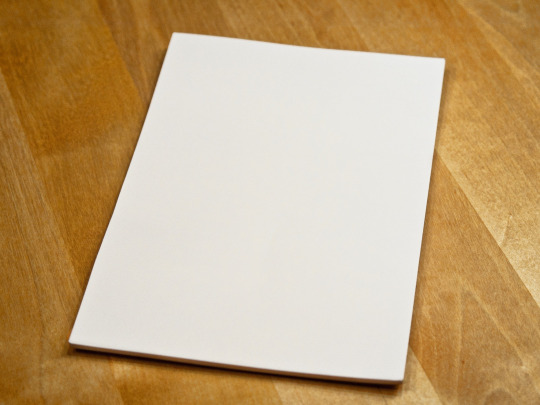Text
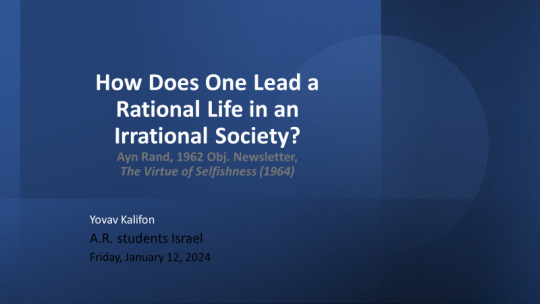
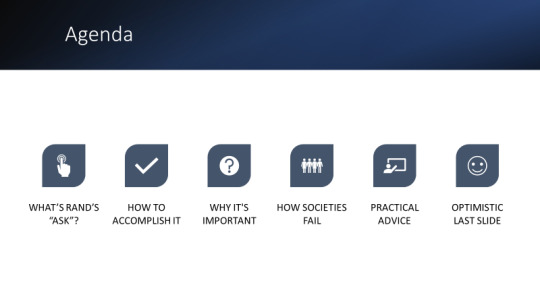
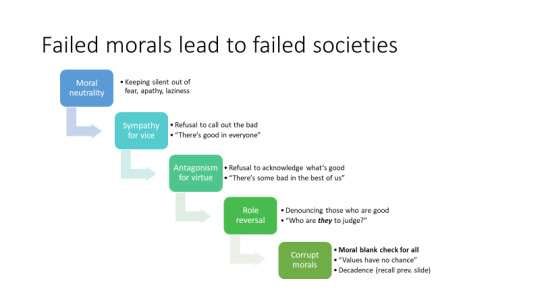
4 notes
·
View notes
Text
The literal meaning of being Palestinian in Gaza
Literally, the word "Palestinian" means nothing in Arabic. There's no such word in the Arabic dictionary. The origin of this word is most probably Hebrew. It appears in the Hebrew Bible, and it literally means "invaders". Coinsidentally, 'Gaza' also means invaders, in Arabic.
Let's start with the ancient Philistines, who traveled by sea from the Aegean region and landed along the coasts of Egypt (where they were repelled) and Canaan (where they settled). The local tribes called these people "invaders". Hence the Hebrew name.
Now, what about the literal meaning of 'Gaza'?
This one is trickier. I only figured it out yesterday.
Gaza appears in the Hebrew Bible, so it's an authentic city-name. It also appears in more ancient texts, so the authenticity is not an issue. The question is what 'Gaza' means, literally.
It is clear the Arabs who arrived en-masse in the 7th century adopted the pre-existing name of the city of Gaza, so we turn first to Hebrew for the original meaning of 'Gaza'. This turns out to be tricky, because the city is called 'Azza' in Hebrew, which is not the same as 'Gaza'...
Let's first clarify that the Arabic alphabet has two closely related letters, relevant to our question. They are the letters 'A' in 'Azza' and the letter 'G' in 'Gaza'. The letter for 'A' is [ع] and the letter for G is [غ]. They look identical, except that G has that dot on top.
With that in mind, 'Azza' and 'Gaza' are obviously very different words, in Arabic at least, related two different root letters, hence having two separate meanings (عزة vs. غزة). In Hebrew, however, that same letter 'A' and that same letter 'G' merged into one letter (ע). This makes it difficult for Israelis to solve the exercise. We can only assume that the ancient Israelites referred to 'Azza' as 'Gaza' (meaning, غزة, and not عزة), and that the modern Hebrew speaker mispronounces the name of the city (calling it not غزة, but عزة).
So on second thought, let's go first to the Arabic dictionary, and later revisit the Hebrew for confirmation. In Arabic the exercise is straightforward - the root letters for 'Gaza' are clear, and the dictionary shows the word has to do with invasion / incursion / conquest. Done!
Now back to Hebrew, we do find 'Azza' has two possible meanings. We will attribute one to عزة and one to غزة. Luckily, there is a perfect match between عزة in Arabic and 'Azza' in Hebrew - they both mean 'strong / powerful / respectable'. Done.
The second Hebrew meaning of 'Azza' in Hebrew is 'something very bad / misfortune / negative scenario'. We see this in Samson's riddle - וּמֵעַז יָצָא מָתוֹק - "and from Azz came something sweet" (from a negative predicament came something positive).
So, while 'Azza' city means 'strong city' we shall attribute the Arabic 'Gaza' (غزة) city to mean 'city of bad news (misfortune)'.
Recalling that Gaza is located at a strategic crossing point, bridging Africa, Asia and Europe, it comes as no surprise that empires repeatedly passed through, and either had to fight their way through or negotiate a fair price for safe passage. In either way, they had to deal with an obstacle, which meant 'bad news' to them (or bad news for the inhabitants).
So finally, if we consider the meaning of 'Palestinians' (in Hebrew) and the meaning of 'Gaza' (in Arabic), we find the literal meaning of "Palestinian in Gaza" to be "invaders in the city of invaders".
Click the below image to reach the online dictionary (almaany).
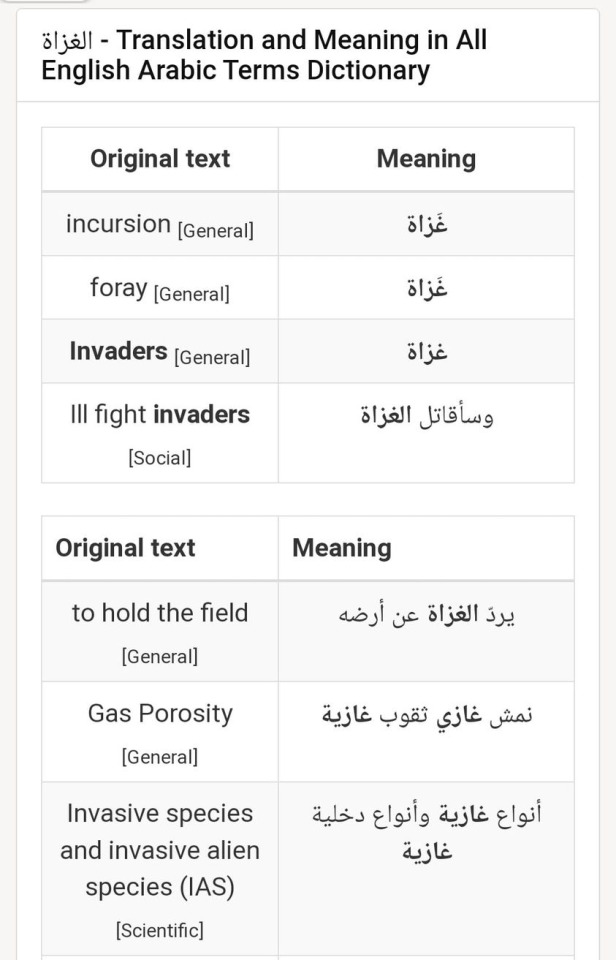
Later addition:
It came to my attention that there is a book called Al-Maghazi (The Conquests) written by Abu Abdullah Muhammad bin Omar bin Waqid Al-Sahmi, known as Al-Waqidi. In it, Al-Waqidi collected the stories of the conquests of the Messenger of God, Prophet Mohammed, and his convoys. This goes to show the root letters of Ghaza indeed use to describe conquests. There is a refugee camp by the same name (Maghazi - مغازي) inside the Ghaza strip.
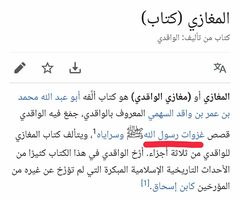
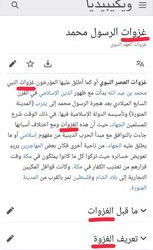
0 notes
Text
Who started the conflict?
Today I explained the Arab-israrli conflict to my 4 year-old niece, using a simple mathematical model:
Let's assume you want to play with your sister and she also wants to play.
How much is play X play?
- "Play!"
That's correct. Now let's assume you want to fight with your sister and she also wants to fight.
How much is fight X fight?
- "Fight!"
That's correct. Lastly, let's assume one of you wants to play and the other wants to fight.
How much is play X fight?
- "Fight!"
That's correct. And who's the one who started the fight?
- "How should I know?"
That's correct.
---
=> We see there's a fight between Arab and Israeli entities, so we can assume at least one side wants to fight, if not both.
=> The fight alone is not sufficient for anyone to determine which side wants to fight and which side wants to play.
=> And, if one side is fully committed to fighting, then the model above predicts an intractable conflict.
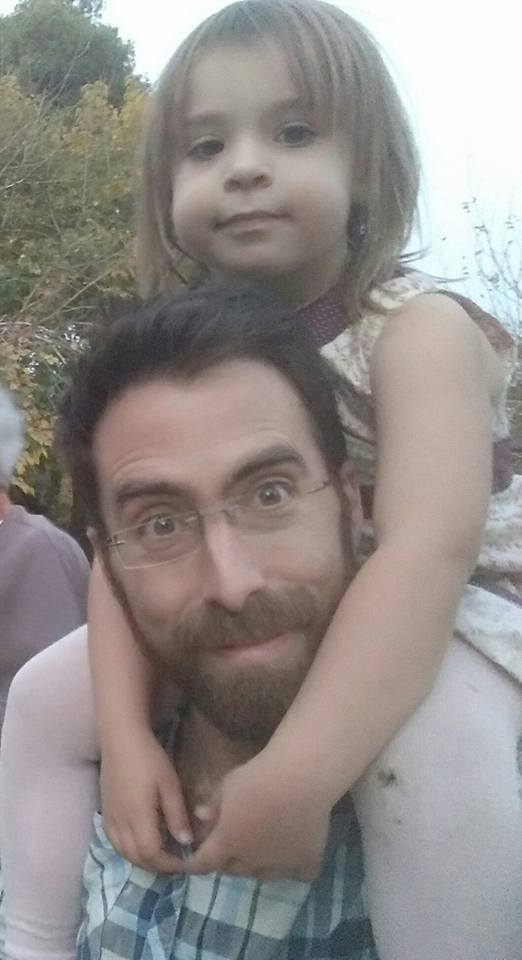
1 note
·
View note
Text
The conflict’s root cause - a live demonstration
The following exchange illustrates a) what the Arab-Israeli conflict is fundamentally about, how to demonstrate that fundamental cause, and how easy it is to miss the fundamental issue.
The text is an edited abbreviation of an exchange that took place on FB, beginning yesterday. The original post, by a Palestinian professor of political science went as follows:
Thinking Dependency is to think ‘we will teach about the Holocaust if they teach about the Nakba.’
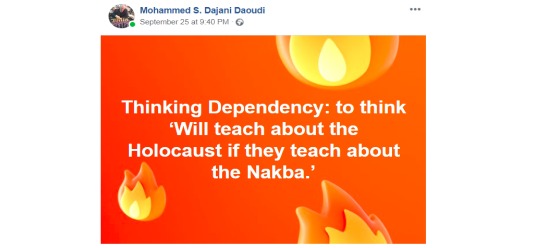
Yovav
In one sentence, what do Palestinians mean by "Nakba"?
In one sentence, when we say "Holocaust", we usually mean the *industrial* manner by which Nazis *decided* to eradicate the Jewish people - all Jews were designed to die, very thoroughly, working down the list of names.
...if you cannot tell me what it is, how can you trust that I will teach it properly?
What if a Palestinian would say to you: "Yes, I teach about the Holocaust - it was a Zionist plot to push the Jews to Palestine to dispossess the Palestinian natives..."?
That's terrible. That's why I took care to define the Holocaust.
Now please, define the Nakba in one sentence.
Shapira (Israeli teacher)
The facts, very simply, are that Nakba = Arab_status_in_1947 - Arab_status_in_1949. No one can argue the result is negative.
Yovav
Shapira, aha! You prove me right! Now we need a Palestinian to tell us what Nakba means, because I'm pretty sure you missed the main issue by 180 degrees.
We stand to learn something important, if only a Palestinian would inform us...
Yalla guys. Define the Nakba in one sentence.
Shapira
got it exactly wrong?
Jakobs
I’m afraid to ask. What are you trying to do?
Yovav
I'm trying to prove to you that a Palestinian's definition of Nakba is likely to shock you in a constructive way, especially since you missed the gross error made by Shapira.
Antwan (Palestinian Christian)
Nakba is Palestinian dispossession of their native lands and the creation of a Palestinian diaspora and of a separationist systems that gives privileges to immigrants to land and sovereignty over the interest and rights of the local inhabitants.
Yovav
Thank you Antwan, for validating of my central argument.
Shapira, do you see the huge difference between your definition and Antwan’s?
This conversation was VERY important for understanding the conflict.
People should look at this.
But the critical points to notice in this conversation are all too subtle...
Most people probably won't catch it.
Shapira
Nakba = Arab status in 1947 - Arab status in 1949.
I fail to see how this formula fails.
Yovav
Shapira, you proved my second point, that educated people are likely to miss the fundamental point.
Here's the main point:
Anton's Nakba is based on Israel's existence, while Shapira's Nakba is based on Arab standard of living (look at how each person defined “Nakba”).
[Hypothetically,] If we take the refugees and give them all of Canada, plus make them all millionaires, we solve Shapira's Nakba but we don't solve Anton's Nakba.
[Practically,] If we teach Shapira's Nakba to Israelis, Israelis would feel inclined to donate money to Arabs, but if we teach Anton's Nakba to Israelis, Israelis would feel inclined to terminate Jewish sovereignty, as [if it was] the root cause of the conflict.
Antwan
To clarify, my Nakba is not "based on Israel’s existence", it’s based on how "Israel’s existence was/is practiced as Jewish superiority exclusivity approach".
Yovav
I know, I read your definition carefully. You basically describe Israeli sovereignty as "Nakba". In my words, you reject the existence of Israel.
Antwan
No, I'm saying the way you practice sovereignty is not the way I see it. The way you do is more of a western approach, it is the core of the problem. Israel can exist and coexist and thrive if different understanding and practice is applied.
Yovav
I repeat Anton's definition, as I read it:
"Nakba = palestinian disposition from native lands [losing 48 war, ok] and the creation, the creation of Palestinian diaspora [by Israel's existence] and of a separationist systems [Israel's existence] that gives privileges to immigrants [Jews] to land and sovereignty [!!!SOVEREIGNTY!!!] over the interest and rights of the local inhabitants [Palestinians]"
Yovav
Antwan, would it be fair to say you agree to Israel's existence but you want Israel to change?
If yes, then you reject Israel’s sovereignty, Israel's right to manage itself.
It's the same as rejecting Israel's existence, because if we let you be the boss of Israel, then we lose Jewish national Independence...
...and Israel no longer exists as a Jewish state.
Antwan
There were Jews in the land, not immigrants, aka locals.
Yovav
So for you it's OK to have Jews around but without allowing Jewish sovereignty.
Clearly you reject Israel's existence.
Antwan
You’re basing your whole argument on a Judaeo-Christian or Western understanding of self governance, NOT Even Jewish.
Yovav
Now you sound like you want to determine for Jews who they are and how to be Jewish.
You hereby reject Jewish *self determination*.
Antwan, you just keep reinforcing my original conclusion - that the conflict is forced by Arabs upon Jews.
Anton
As long as u don't abuse my rights. My issue is with the lack of understanding of the possibility hybrid Co-governance and self autonomy group matters. Look at EU or USA. Just look beyond ur master narrative of what is possible and what is not possible. If u put that lens on, can u read my words as an invitation rather than attack?
Yovav
I read your words as an invitation to compromise over Jewish independence in the land of Israel, which is to say, you are challenging my independence with sweet promise of a shared governance.
You point to the USA and EU as your ideal model, while at the same time you criticize Judaeo-Christian or Western understanding of self governance...
Britain left the EU because they value their self governance more than sharing it, so you are really only left with one example - the USA - where white immigrants dispossessed the native Indians and brought in African slaves... Is this your ideal model for the future of Israel/Palestine?
Good night and thanks for this discussion.
0 notes
Text
REDEFINITION OF PALESTINE ‘64-’68
Some think of Palestine as the area known as the West-Bank and Gaza, as is often suggested by Palestinian officials. The supposed cause of the Palestine Liberation Organization (PLO) is assumed to be the liberation of those territories, accordingly.
The original PLO charter from 1964, the year of its establishment, is identical to the 1968 charter except for article #24.
The 1964 charter defined Palestine as the territory of the State of Israel and specifically excluded the West Bank and the Gaza Strip.
The 1968 version of the charter omits this exclusion, making Israel, the West Bank and the Gaza Strip combined the Palestinian homeland to be liberated.
1964
Article 24: This Organization does not exercise any territorial sovereignty over the West Bank in the Hashemite Kingdom of Jordan, on the Gaza Strip or in the Himmah Area...
What happened after 1964, but before 1968, is that the Hashemites were driven out of the West-Bank, the Egyptians out of Gaza, the Syrians out of Himmah Area. Those territories were freed from (illegal) Arab occupying forces, came under Israeli control, and magically became the Palestinian homeland, with historical roots that justify claims of ownership to those territories.
This redefinition of Palestine is understood in light of article #1, which contradicts subsequent articles, but nevertheless:
Article 1: Palestine is an Arab homeland bound by strong Arab national ties to the rest of the Arab Countries and which together form the great Arab homeland.
To state things more clearly, Zuheir Mohsen, of the PLO, explaines:
“The Palestinian people does not exist. The creation of a Palestinian state is only a means for continuing our struggle against the state of Israel for our Arab unity. In reality today there is no difference between Jordanians, Palestinians, Syrians and Lebanese. Only for political and tactical reasons do we speak today about the existence of a Palestinian people, since Arab national interests demand that we posit the existence of a distinct "Palestinian people" to oppose Zionism. Yes, the existence of a separate Palestinian identity exists only for tactical reasons, Jordan, which is a sovereign state with defined borders, cannot raise claims to Haifa and Jaffa, while as a Palestinian, I can undoubtedly demand Haifa, Jaffa, Beer-Sheva and Jerusalem. However, the moment we reclaim our right to all of Palestine, we will not wait even a minute to unite Palestine and Jordan.”
- James Dorsey, "Wij zijn alleen Palestijn om politieke reden", Trouw, 31 March 1977.
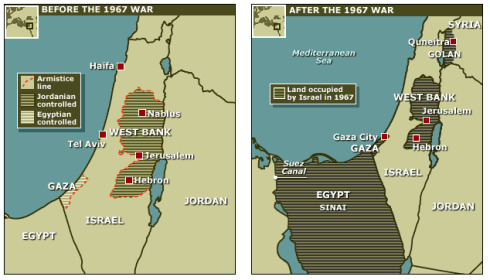
QUIZ!
Why did the PLO not claim ownership to other lands captured by Israel in ‘67, namely Egypt’s Sinai peninsula and Syria’s Golan Heights?
1 note
·
View note
Text
ABBAS CONTRADICTS HIMSELF BETWEEN ARAB LEAGUE SUMMIT AND WHITE HOUSE
On the White House lawn, President Abbas contradicted his statements made a month earlier in Jordan. The two statements leave us wondering whose job it is to seek a solution for the Israeli/Palestinian conflict:
“Mr. President, for us to bring about a comprehensive and just peace based on the two-state solution, such matter would give a great impetus to the Arab peace initiative... And that also, if we create peace that is just and comprehensive, that will also lead the Arab and the Islamic countries to have normal relations with Israel based, as stipulated in the previous Arab summits, the latest of which was the Arab summit in Jordan.” [Haaretz May 03, 2017].
But notice exactly what Abbas said at that Arab summit in Jordan:
“There are no new peace plans or initiatives,” Abbas told the Jordanian daily al-Ghad in an interview published on Wednesday.
“As we have in the past, we support the Arab Peace Initiative as a resolution to the conflict. We have no new plan,” Majdalani told The Jerusalem Post.
So, if we are to believe Abbas’ May statement in Washington, we can count on him to actively seek a resolution with Israel, quickly followed by peace in the Middle East. Conversely, if we are to believe Abbas’ March statement in Amman, we can count on him to play a passive game, essentially waiting on Israel to comply with the Arab Peace Initiative.
Keep in mind that the Arab Peace Initiative is a short, vague, one-page document which itself calls on the parties to specify a solution, i.e. there isn’t yet a solution for Israel to comply with.
If you study the peace process, you’ll notice there are proposals and parameters named after Israeli leaders, Americans, Westerners and the Saudis. The Palestinians were always the ones approached with ideas.
That is all fine and fair, but fairness dictates that the Palestinians should go next, draft a proposal, and approach the Israelis with it. Then, finally, maybe, we will learn what a just solution actually means for the Palestinians. For example, how many refugees are to return? Specifically to where? Will the PA recognize Israel’s legitimate existence, its independence, its sovereignty? Will the Palestinians declare the end-of-conflict in that Abbas-proposal?
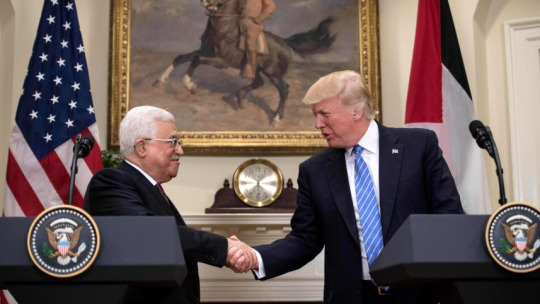
As an aside, another contradiction stood out for me in Abbas’s words to Trump. Compare these lines:
May 2017
“Mr. President, I affirm to you that we are raising our youth, our children, our grandchildren on a culture of peace” [said Abbas to Trump]
PLO charter, Articles 7 & 10:
“...It is a national duty to bring up individual Palestinians in an Arab revolutionary manner...”
“...This requires its escalation, comprehensiveness, and the mobilization of all the Palestinian popular and educational efforts and their organization and involvement in the armed Palestinian revolution...”
If you agree it isn’t clear what would satisfy Palestinian demands, if you also agree all previous proposals fell short, then please sign this petition calling on Abbas to formulate a Palestinian solution - https://goo.gl/xj0yJ2
0 notes
Text
Petition: Palestinian President to formulate end-of-conflict proposal for once
Sign & Share
On May 3rd 2017, Palestinian President Mahmoud Abbas will meet with US President Donald Trump at the White House to discuss the revival of the Peace Process. Experience shows that an innovative step is needed.
We urge President Abbas to formulate a Proposal for Ending the Conflict!
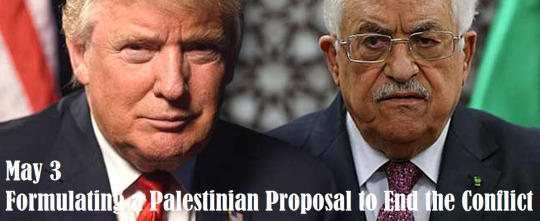
None of the peace offers ever made were accepted by the Palestinians. The rules of negotiation require the Palestinians to present an improved counteroffer of their own design. However, in March 2017, at the Arab League Summit in Jordan, President Abbas declared that, beyond the Arab Peace Initiative, no new plan will be drafted.
Sadly, the Arab Peace Initiative is not a proposal: it is a list of guiding principles. For example, rather than offering a solution to the Palestinian refugee problem, it “calls on the parties to achieve a just and agreed upon solution”. Also, the "regional peace" described in the Arab Peace Initiative is said to come as a consequence (عندئذ) of the Palestinian issue somehow being resolved.
In the spirit of the Arab Peace Initiative:
1. We petition President Abbas to formulate a Proposal for Ending the Conflict that will be acceptable to Palestinians as a “just solution";
2. We petition Prime Minister Netanyahu and the Israeli Government to consider the Palestinian end‐of‐conflict proposal and to vote on it;
3. Should the proposal not be “agreed upon”, the Israelis should commit to making the next counter‐proposal.
Sign & Share: https://goo.gl/xj0yJ2
0 notes
Text
Theory of Beersheba
In explaining what Beersheba means, we understand what Jesus means.
Beersheba (בְּאֵר שֶׁבַע - بئر السبع) is a central city in Israel's Negev Desert, nicknamed The Negev Capital. In my native Hebrew, Be'er-Sheva sounds like Water-Well Seven.
Why seven?
I don’t have one proven answer, so I’ll give four possible answers.
The Hebrew Bible is the oldest reference to the city, and it provides a reason for naming it Beersheba. In-fact a few reasons.
In the Bible, Abraham faces King Abimelech of Grar. They argue over who built the well at Beersheba. Abraham gives Abimelech seven goats and the king agrees that Abraham dug the well himself!
Great.
But the name Beersheba is not because of the seven goats, says the Bible. The word Sheva is spelled Shava (בְּאֵר שָׁבַע) so it no longer means seven at all. It now means pledge or vow.
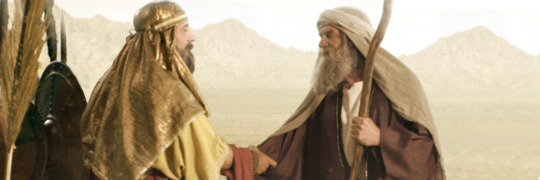
Beersheba, in Genesis 21, means The Well They Shook Hands On.
In another story, this time in Genesis 26, the son of Abraham, Yitzhak, faces a suspiciously familiar situation; King Abimelech's slaves meet Yitzhak’s slaves and they argue over a bunch of wells (let’s assume six wells). The Philistines clogged those wells up after Abraham had died and Yitzhak labored to restore them. He even recalls to name each well as it used to be called. King Abimelech throws a feast for Yitzhak and agrees that Yitzhak owns the wells.
On that same day, Yitzhak’s slaves notify their master that they had dug a well and found water. Yitzhak names this last well Shiv'a, the number seven, so we can assume it’s a new dug well and the seventh in total.
The city, from that moment on, was to be named Be'er-Sheva (בְּאֵר שֶׁבַע), or well-seven, and no longer Be’er-Shava (בְּאֵר שָׁבַע), as Abraham previously named it in commemoration of the first oath.
Make sure you caught that. It was Shava before and it is Sheva now. It was well-of-oath earlier and it became well-seven.
Excavations at the ancient Tel of Beersheva reveal a well-planned city with houses of uniform size, massive city walls, streets that converge on a main plaza, huge storage houses, a royal palace and an impressive altar.
There's a gigantic water cistern dug 69 meters directly below the city, crucial in times of siege, but there’s no cluster of wells to match the Biblical tale.
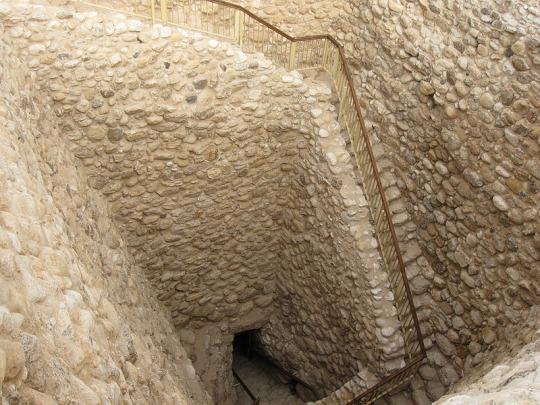
Descent towards the water cistern in the heart of ancient Beersheva Tel
Suspiciously, the story of the oath appears twice. Suspiciously, the Bible attempts to explain two different names, Shava and Sheva. Suspiciously, Yitzhak uses Shiv’a, in the masculine form, while a well in Hebrew is feminine!
Problem.
Turning now to Hebrew's cousin language, Arabic, we have the verb Shaba'a (شَبَّعَ) and the related noun Shab' (شَبْع) which implies fullness, gratification, satiation, satisfaction, sufficiency. If that describes a well in the desert I'd imagine a great city be built around it.
We find this same word in Hebrew too. It expresses satiety, feeling stuffed after a good meal - شبعان - shab’an - שָׂבֵעַ.
Sadly, however, the Arabic name of the city is Be'er-as-Sab'a, which translates plainly as Water-Well Seven. Also the Hebrew stuffed is Sa’ve’a and not Shave’a.
Luckily, we pick up a clue in the name of lady Bat-Sheva (Bathsheba in KJV). Her name suffers from a disturbing problem that we can exploit.
In one place Bet-Sheva is spelled בַּת-שֶׁבַע, and reads as Daughter of Seven. In another place Bat-Sheva is spelled בַּת-שׁוּעַ, and reads as Daughter of Shua.
Who is Shua and what does he have to do with anything?
Well, mister Shua appears right before his daughter in the Bible, simply as a guy named Shua. The word Shua means Noble, or Influential, so it’s probably the correct spelling, because Seven would be a silly name to have.
Finally, we may conclude that Beersheba used to be spelled בְּאֵר שׁוּעַ, which sounds like Be’er-Shua, and translates as Well of the Noble.
Perhaps, gradually, the local population lost the proper pronunciation of Shua and it sounded more like Shava to them, and from Shava it shifted to Sheva, just as lady Bathsheba should be called Bat-Shua but we call her Bat-Sheva.
The Bible was written much after the city was established. By then, the name of Beersheba was distorted. The Bible, in attempting to give the corrupted name meaning, comes up with a few suspicious reasons involving an oath, seven sheep and seven wells.
Giving the Bible some credit, we do notice that Well of the Noble relates to the tradition of Abimelech, King of Grar, acknowledging Abraham’s and Yitzhak’s property. These are all noble characters.
My bet is that the well really did belong to the noble King of Grar, and that the Hebrew Bible struggles to claim the well for the Hebrew tribes. To do this, the Bible encourages us to read the name as Well-of-Oath or Well-Seven. It promotes a narrative in which Abimelech relinquished the well to us.
Twice!
---
A bonus treat for those who’ve read thus far: The name Jesus in Hebrew is Yoshua. It reads simply as God is Noble (Yo is YHWH).
Strong validation for this understanding of Jesus is found in the Biblical name Malkishua, which means my king is noble. This name convincingly links Shua, as a name in common use, with nobility, as its correct interpretation.
---
So there you have it. I hope you liked it. And visit Beersheba's famous well.
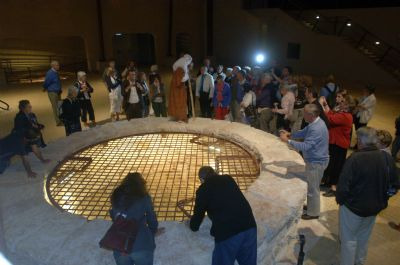
Visitors at Abraham’s Well in Beersheba’s visitor center.
0 notes
Text
The meaning of my first name
My first name is Yovav (יוֹבָב). Only recently I found out what it means. I assume it isn't immediately obvious to you as it wasn't to me, so I hope you'll enjoy this.
If you grew up secular in Israel you’re probably asking yourself why anyone would name their son after the villain in Pinocchio. Of course that’s not it. My immigrant parents didn't see that one coming, plus the villain Cat isn’t named Yovav in the original Italian [1].
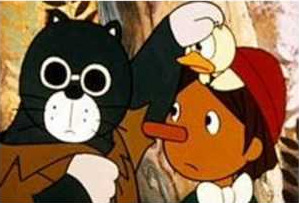
"Yovav is mentioned in the Hebrew Bible" I answered my 9th grade bible teacher. Not much is said about biblical Yovav so I can’t blame her.
For our purposes, it's worth pointing out the name Yovav appears in various Semitic tribes, Including Israelites and Ishmaelites [2].
The Yo part of Yovav is the easy part. Yo is the short-form name of the god of Israel Yahwe.
Take for example the name Yoel (Joel). El in plain Hebrew means a god, thus Yoel tells us that Yahwe is a god.
Well, dah...
Consider these common Hebrew names:
Yoav (Joab), god is a father;
Yoaz, god is mighty;
Yoad, god is eternal;
Yoram, god is high;
Yonatan (Jonathan), god gave;
Yonadav, god generously gave;
Yoshua, (aka Jesus), reads as god is noble.
Done with Yo, we are left with the problem of VAV in Yovav. The examples above hint that VAV is either a verb or a title attributed to god.
I used to think VAV was a hapax legomenon, a root that appears only once in the bible, and since it appears only in the form Yovav, there's no context to help us guess what it stands for.
Then I started taking Arabic lessons to enhance my work with Palestinians. I was lucky to have an etymologist for a teacher at the wonderful JICC. For three consecutive years I would badger my teacher about the origin of whatever new word I found interesting that day in class. He never failed to provide an answer. A very detailed answer.
Finally I thought I could really challenge him. I asked if there's an Arabic root that would shed light on the forgotten Hebrew root VAV. Immediately he said it relates to BAB, a very basic Arabic word for door. Hebrew speakers are familiar with Bab el-Wad (the valley’s gate) a powerful 1948 war song.
youtube
Bab el-Wad by Shoshana Damari
If we explore this root a little further, it leads to the profession Bawwab (بَوّاب), which means doorkeeper, guardian. Read VAV as a title and Yovav means Yahwe the protector.
With that connection in mind, it became apparent that BAB actually still exists in Hebrew, and that VAV isn't a hapax legomenon after-all.
Look at the Book of Zecharia II, verse 12. It contains the phrase [in his] Bavat Ain which we understand as the gate of his eye, his pupil [3].
כֹה אָמַר, יְהוָה צְבָאוֹת... שְׁלָחַנִי אֶל-הַגּוֹיִם הַשֹּׁלְלִים אֶתְכֶם כִּי הַנֹּגֵעַ בָּכֶם נֹגֵעַ בְּבָבַת עֵינוֹ.
Zecharia is saying that those who harm us, it is as if they stuck a finger in the pupil of Yahwe! The pupil is a highly sensitive organ, thus the term Bavat Ain describes something sensitive we protect dearly.
Sure enough, pupil in Arabic is precious of the eye (حَبّةُ العَيْن). Zohar Argov, "the king", sings about the flower in his garden, his precious lady, whom he calls Bavat Eini (“כי לי היית בבת עיני בכל יום וכל ליל”).
Simply put, Bavah in Hebrew is BAB (gate) in Arabic. Bubu (بُؤْبُؤ), yet again, is a simple Arabic word for pupil, clearly derived from the same root.
We recognize this word in the familiar Aramaic term Bav, as in the division of the Mishna into sections or “gates” [4]:
Bava Kamma (בבא קמא, The First Gate).
Bava Metzia (בבא מציעא, The Middle Gate).
Bava Batra (בבא בתרא, The Last Gate).
Revisiting the Arabic verb Bawwab in the infinitive, it implies "classification; division into chapters or sections; grouping; sorting; tabulation" (تَبْوِيب), exemplified by the Bavs of the Mishna.
So my Arabic teacher got it right. Surprise surprise. The VAV in Yovav is like BAB in Arabic. Read VAV as a noun and Yovav means gate to god.
If indeed it is a connecting portal, then we find the gate to god in Arabic as Bab-Allah. See for example the song على باب الله (at the gate to god).
This is such a powerful concept there is even a religious movement called Bábism. Babists broke away from Islam after their leader proclaimed himself the gate to the hidden Imam, even as the gate to Allah proper.
In the Jewish tradition we also encounter the gate to god, or more precisely the gate to heaven (שער השמים). It is attributed to Bet-El where Jacob had a dream of angles trafficking betwen heaven and earth. Elsewhere in the bible Jerusalem is promoted as the true gate to god or to heaven [5].
Looking further into antiquity, we find an earthly portal to heaven in The Tower of Babel. By now you can probably decode it yourself: Bab-El.
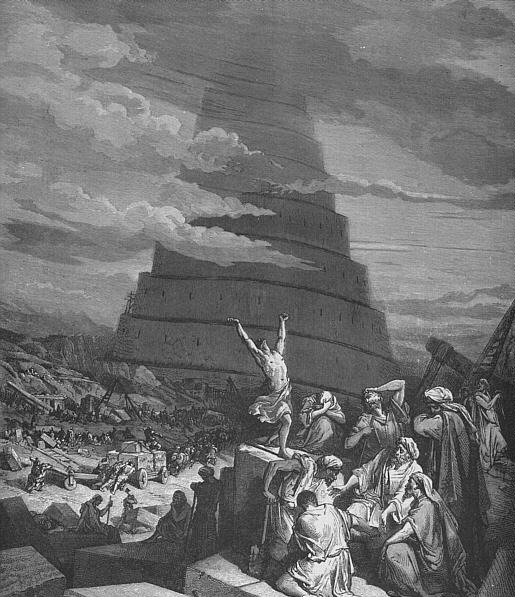
The Confusion of Tongues, Gustave Doré (1865)
Adding to the confusion, Yovav (Babel) Kalifon (2017)
So, having given it some thought, I finally conclude that my name Yovav means Babel - a portal to god.
The good news is that even if I am wrong and my name actually mean god is the gatekeeper, then it nicely complement the meaning of my last name!
---
[1] In the original Pinocchio story, the villain Fox and Cat have no names. In the Hebrew animation series they are Samson and Yovav, for no particular reason.
[2] Yovav ben Yaktan ben Ever, from the line of Shem (Genesis 10).
Yovav ben Zerah of Basra, king of Edom, line of Esau (Genesis 36).
Yovav king of Madon, whose confederacy lost to Israel (Joshua 11).
Yovav from the heads of the line of Binyamin (Chronicles 8).
[3] Don't mind the T in Bavat. It is not part of the root. It is a feature of the construct state in Semitic languages.
[4] Bav in Aramaic is a gate, and Bava is the gate.
[5] There is little distinction between god and heaven in Hebrew, as we see in the Hebrew god-fearing (יראת שמים, sky-fearing) and for god’s sake (לשם שמים, for heaven’s sake).
0 notes
Text
The meaning of my last name
My last name is Kalifon (Καλλιφῶν). In Greek it translates as fine voice. But nothing in my family’s history traces us to Greece. However, the name Kalifon fit us well, as it relates to my family’s tradition of belonging to the line of Levi.
So let’s examine this.
Levi is one of the twelve tribes of Israel. According to the Book of Joshua, the tribes inherited The Promised Land and were issued separate parcels to settle on. Well, all except Levi. The covenantal land grant allocated cities of refuge for Levites, where they could settle and teach Torah to the other tribes. In addition to teaching, the Levites carried ceremonial responsibilities in the House of God in Jerusalem.
The two main responsibilities of the Levites in the Temple were to guard the gates, which relates to the meaning of my first name, and to perform music, which relates to my last name:
In Greek, Kali (Καλός) means good or beautiful (see calligraphy). Fon or Phon (φωνή) means voice or sound (see phonetics).
But how did two Greek words become my family name?
As it turns out, the Greek name Calliphon was long in use. Calliphon of Croton (6th century BCE) was a Pythagorean physician. Josephus Flavius (1st century CE), a native Hebrew man, mentions this Calliphon. But Josephus wasn't the only Jew familiar with the name. Calliphon is found in the Targum translation of the Bible to Aramaic:
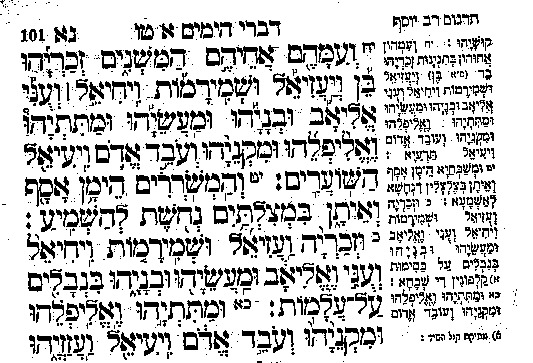
Above is Chronicles I, ch. 15 in Hebrew with Aramaic translation on the right. Notice my family name (קלפונין) near the bottom-right.
The Hebrew Alamot (עלמות) in chronicles is translated as Kalponin (קלפונין) in Aramaic. Notice the Aramaic suffix in after the Greek term Kalpon to give the plural Kalponin, implying it is a noun(*).
In Jastrow (below) find the above Kalponin written as Kallífonoi in Greek letters and translated as young men with fine voices. Other interpreters of the Hebrew Bible think it means just musical instrument, not singers, but in any case a noun, not a person’s name.

Kallífonoi in Jastrow
In the chapter given above the Levites are mentioned as guards (שוערים) and singers (משררים). They are chosen to carry the ark to Jerusalem in a musical procession, both vocal and instrumental. King David, himself a recognized musician, got a bit carried away and was seen dancing along with the ark.
So there we have it; the Greek name Calliphon entered the Jewish language of the day - Aramaic, in place of the obscure Hebrew noun Alamot. This new term, accessible to Jews from that time on, was at some point assumed by a certain family of Levites, which explains how my Jewish Ashkenazi ancestors ended up with a Greek name.
In case you were wondering, no, I don't sing, and neither does my father nor anyone else in that branch of the family. However, many of us Kalifons have been, and still are, passionately involved in teaching the Torah... and other Jewish topics.
---
(*) To explain the difference in spelling, from Kallífonoi to Kalpon, I offer the following: the Greek words Kal (pretty) and Phon (voice) were simple and familiar enough to Aramaic speaking Jews. Upon hearing the name Callíphon they might have interpreted it as Kal+Phon. The Hebrew language would tend to move the accent from the letter [L] to the letter [Ph], and turn the [Ph] into a [P], to produce Kalpón, as in Jastrow.
0 notes
Text
Holocaust survivor takes questions from Gaza
This year for Holocaust Memorial Day I decided to host a holocaust survivor at my apartment and have an open house for interested listeners.
My address was made public by Zikaron Basalon (Hebrew for: remembering in the living-room) which supports this sort of personal connection over attending the usual ceremonies held throughout Israel, or watching documentaries on national TV.
Fortunately I located a survivor named Ellis who might be a family relative of mine. Ellis’ mother was a Suzi Nuñes Navarro, from Amsterdam, and my mother was Rebecca Nuñes Navarro, also from Amsterdam. The surname is clearly Sephardi in origin.
Ellis tells a fantastic story about her first love, Bernie Spir, and how they went into separate hiding at age eighteen in 1941. The couple agreed to keep diaries so that they could exchange them after the war and catch up on all they had gone through while hiding. They set a rendezvous point, Tuesday, four PM, on the bench in the neighborhood roundabout.
Tragically, Bernie never showed up, week after week, Tuesday after Tuesday. Realization set in and Ellis found a new man. She was determined to fulfill their original dream of moving to Palestine and raising a family. On her wedding day a package for her came in the mail. She recognized Bernie’s handwriting in the diary that was delivered, and the world started spinning. It was a call from the grave...
Sixty five years later, with the support of her new family, Ellis finally agreed to open those diaries and track Bernie’s footsteps, to learn of his fate. The result of that long investigation is beautifully captured in a documentary film and book by herself and her Israeli daughter, Shulamit.
To make the most of this special event in my living-room, I invited Palestinian contacts of mine to send in their questions, from Gaza and the West Bank. One Palestinian in the live audience even came out with an article on Jpost, titled “Why should we, Palestinians, learn about the Holocaust?”
Below are the Q’s and A’s to the best of my recollection:
youtube
Q’s from Gaza:
A. Why did you survive?
She could not answer this. Some survived. Some died. She doesn't feel she did anything special. But personally I feel she had high spirits and high hope and she wanted to survive. In her diary she keeps writing how much she wants to live, how much she wants to marry, she wants to move to Palestine and have a family (she was in love with Berni, he was hiding in a different place, but he did not survive the war. She married a different guy and moved to Palestine and had a big family in the end).
B. Do you hate Europe?
She didn't say this, but she did say she could not visit some places and stay there long, because the emotions were too bad. When she visited the house where she used to live she found a new family there. They were not happy to see that she survived. They shut the door in her face!
C. I don't think holocaust happened in the way that 6 million of same race died, what proof do you have?
We didn't ask her this because it's not about her personal life story. The number 6 million is just an estimate. The true number could be lower, or could be higher. In truth, the true number does not matter. Does it matter to you?
D. Why you was hiding, what had you done wrong?
She knew she had done nothing wrong. She knew the Nazis were evil liers and that they were killing Jews (her father was sure of it, and she believed her father, he had good sources). She went into hiding because Jews were receiving mail orders and being sent to the east, to the camps, and her family didn't want to follow these orders, because those were death camps, so they went hiding. They changed hiding places 6 times in 4 years. They kept the hiding place secret, because people were reporting to the police when they felt the neighbors were hiding Jews in their homes. Nobody could be trusted.
E. Do you get paid for telling your story?
We didn't ask her this because we know the answer. She doesn't get paid. The event yesterday night was free. She is giving talks because it's important. Many survivors give talks because it's important. Jews and other nations keep saying "never again, never forget", so we must remember the holocaust and learn from it. She wrote a book about her life and the book costs money, but the film she made is always shown for free, and her lectures are for free. Just the publication of the book costs money. It's her writing project after-all...
F. IL killed both my parents and my younger brother, for no reason more than wanting to see people die. Why do they kill so many people here, is it revenge for holocaust?
She said there is no connection between the holocaust and the killing in Gaza. Israel is killing Palestinians only because Palestinians are killing Israelis. She survived a world war and many other wars in Israel. She came to Palestine in 1946, two years before her next big war. So her life taught her a valuable lesson, she knows that war is a bad thing, nobody ever wins, both sides always lose in a war. She says that Israelis and Palestinians must sit together, negotiate, find a compromise, make an agreement, and each side will have a safe place to live. War should never happen again.
G. Why do the Jews treat Gaza like a refugee camp?
We didn't ask this, but it's connected to the previous question maybe. I think she would answer this by saying that Israel uses force against Gaza because Gaza is using force against Israel, we are seeing a war between two sides, and that's why people get hurt on both sides.
H. Do you have nightmares?
We didn't ask this. I am now reading her book. In the book she talks about nightmares, she has very big fears, she is very worried for her love Berni, so in her dreams she see bad things sometimes.
I. Do you hallucinate?
We didn't ask this, but from everything that I know about her I can say she is a very optimistic person, she always focuses on the good things, and this gives her better chances to deal with the bad things, so her life is rather positive. I am guessing she does not hallucinate. She was very sharp yesterday, she spoke in 3 different languages!
J. Have you always talked?
We didn't ask this. I don't know what she was doing before she was so old and in a wheel chair. Maybe I will know more after I finish the book.
K. Are you afraid of what humans beings can do to each other?
We didn't ask this, but I think you and I know what her answer would have been...
L. Can you forgive the Nazis?
She asked if you think she SHOULD forgive the Nazis. After-all, she says, they killed so many members of her family (her family is also my family, from Amsterdam), and the Nazis killed many of her close friends, so she didn't say YES to this question. I think her answer is basically a NO.
I personally feel the Nazis were terrible criminals. They had no reason to do what they did. The Jews did nothing wrong. The Jews were not hurting anybody. The Jews in Europe at that time were in-fact making very big contributions to culture, science, medicine, politics, education etc... really there can be no excuse for what the Nazis did to the Jews. This is how I feel. This is not the same thing as we see in Gaza. Here, in our conflict, both sides are shooting, so no side can say he is innocent. In-fact here both sides are very militant.
Q’s from West Bank:
Q: What was the reason that make the Nazis and many people in Europ hat the Jews?
A: We didn't ask her this because many studies were written about this topic. Personally I think there are very deep and ancient roots to pure antisemitism. Many people feel that Israel is hated today for similar core reasons - antisemitism - and it makes no difference what Israel does.
Q: Was the suffer from the holocaust like what we see in the documentary films or more than this?
A: We didn't ask her this because she was hiding in Holland for 4 years, so she never got sent to any death camps. She lost many family members and friends during the war, but she was not a witness to their dying. She went "underground" with her parents and little brother.
Q: If she return back in time what will she do hide again or face the evil??
A: She said she would probably do the same thing she did in reality. She was more concerned about her personal survival, less concerned about fighting the Nazis with her own hands...
Q: She survived alone or with her family??
A: Her father was very smart, he understood early that the Nazis were lying, he figured out that the labor camps were really death camps and that the Jews were being hunted for their lives. So when he got the letter telling him to report and to be sent to the east, he took his wife and two children and went hiding. They changed 6 hiding places in 4 years until the war ended. The rest of her family was not so lucky...
Q: How did she feel as she came to Palestine?
A: She felt good, it was sunny here, it was her dream to go to Palestine before the war, but she got stuck in the war, and she came to Palestine in 1946, and then she got stuck in another war soon after...
Q: Does the holocaust give the jews the right to kick the Palestinians out their country??
A: She says there is no connection between the war in Europe and the war in Palestine. Back in Europe, the Nazis were hunting the Jews for absolutely no reason. The Jews did nothing wrong, in fact the Jews were good for society, good for economy, good for culture and science and education... here in Palestine we have a different situation. Jews kill Palestinians because the Palestinians are killing the Jews. She says this is a war between two sides, and it was nothing to do with what the Jews suffered in Holland or Poland.
As for the future, she said that she knows one thing for sure - war is terrible, war is never good, both sides always lose in a war, there is never a winning side in any war, so the war must stop. She says we should all sit down and discuss how we want to live safely, and reach a compromise about the land. Life is more important than land, so both sides need to agree where exactly the border will cross, and then everyone could live safely.
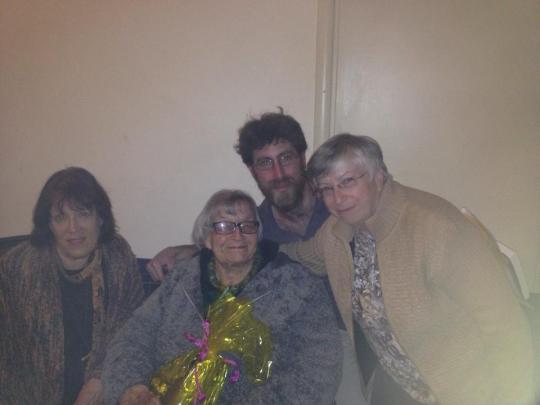
Left to right, Shulamit Bitran-Lehman, Ellis Cohen-Ferera, Yovav Kalifon, Rebecca Navarro-Kalifon
0 notes
Text
Inspired instant
I read this poem by Jorge Luis Borges before going on a hike to Wadi Og after a flood had gone through. The result is self-explanatory in the picture below...
INSTANTS
If I could live again my life,
In the next I'll try to make more mistakes,
I won't try to be so perfect,
I'll be more relaxed,
I'll be more full than I am now,
In fact, I'll take fewer things seriously,
I'll be less hygienic,
I'll take more risks,
I'll take more trips,
I'll watch more sunsets,
I'll climb more mountains,
I'll swim more rivers,
I'll go to more places I've never been,
I'll eat more ice creams and less (lime) beans,
I'll have more real problems and less imaginary ones,
I was one of those people who live prudent and prolific lives,
each minute of his life,
Of-course I had moments of joy, but,
if I could go back I'll try to have only good moments,
If you don't know - that's what life is made of,
Don't lose the now!
I was one of those who never goes anywhere without a thermometer,
without a hot-water bottle,
and without an umbrella and without a parachute,
If I could live again - I will travel light,
If I could live again - I'll try to work bare feoot at the beginning of spring till the end of autumn,
I'll ride more carts,
I'll watch more sunrises and play with more children,
If I have the life to live - but now I am 85,
- and I know that I am dying...
Jorge Luis Borges
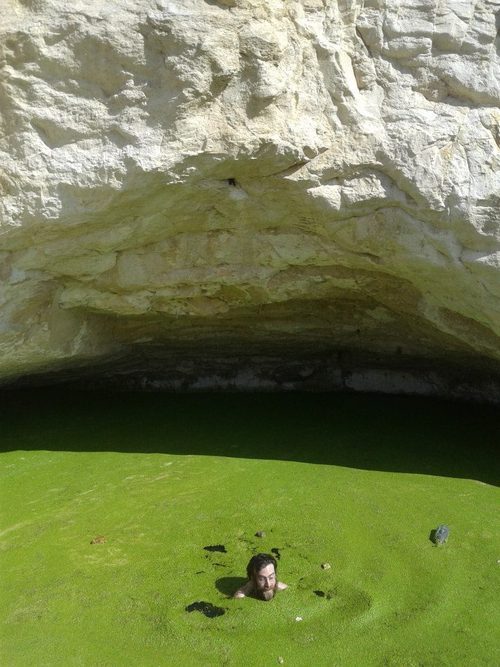
0 notes
Video
youtube
A taste of live music on the streets of Jerusalem.
Experience the styles, views, scenes and seasons.
I took these videos over the last 18 months at random.
I might make more such compilations so please provide feedback.
0 notes
Text
Finding "compromise" in Arabic
It started when a friend of mine quoted JFK on her Facebook page:
"Compromise does not mean cowardice. Indeed it is frequently the compromisers and conciliators who are faced with the severest tests of political courage as they oppose the extremist views of their constituents." An apposite JFK quote Israelis & Palestinians should reflect upon... She wrote.
I commented that as far as I knew, there isn't a word for "compromise" in the Arabic language, hinting that both she and JFK did not take into account how different cultures perceive the concept of compromise, and that this added complication needs to be recognized.
As you might imagine, that Facebook post developed into quite an interesting thread where dictionaries were thrown around (electronically) along with the occasional insult.
Here's a quick summary of the words that were suggested to me, which offer a window into the culture:
وَسَاطَة
Wasata
- Mediation, as in the process of mediation, but mere mediation between rivals does not imply advocating any "compromise".
صُلْح
Sulh (Sul7)
- Reconciliation, repair, as in fixing damaged relations, but two sides forgiving each other does not imply they made any "compromise".
حَسْم
Hasm (7asm)
- To settle a dispute, in the sense that it is brought to conclusion, it's a sealed deal, a closed issue, but does not imply "compromise".
رخص في
Rakhs fi
- Give a discount...
تنازل
Tanazil
- Capitulation, condescend, stoop...
تعويض
Ta'awid (Ta3wid)
- Compensation, amendment, apologizing...
To me, none of these words capture the essence of making a compromise, which is when both sides of a dispute lower their demands in such a way that they are sufficiently satisfied with what each of them get in return for what each of them agree to give.
You might find it offensive, but I wonder why an exact translation for the concept of "compromise" is so hard to find and what implications it has on the idea of conflict resolution in the Middle-East (not only in relation to Israel, but in general).
I found it especially interesting when many native Arabic speakers I turned to for assistance asked me for clarifications such as asking me to use the word in a sentence.
On a more positive note, there was one suggestion that just about fits the bill. It was offered by many people, including one etymologist whose sensitivity to subtleties in translating words is usually astonishing:
حل وسط
Hal Wasat (7al wasat)
- "middle solution"
Pressing the issue further, I asked my etymologist friend for a verb in Arabic which means "to compromise", as opposed to "a compromise", to which he answered:
وصول على حل وسط
Wusul ala hal wasat
- to reach a "middle solution"
So, though it's not exactly a simple verb but rather a compilation of four terms, it provides the concept of reaching a compromise in Arabic, which is what I set out to find.
I leave it to you to discover how frequently this term, "to reach a middle solution", is currently being used, in the context of political conflicts, in public statements, in Arab media, in public discourse etc.
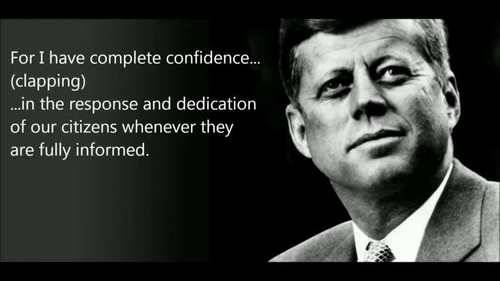
0 notes

